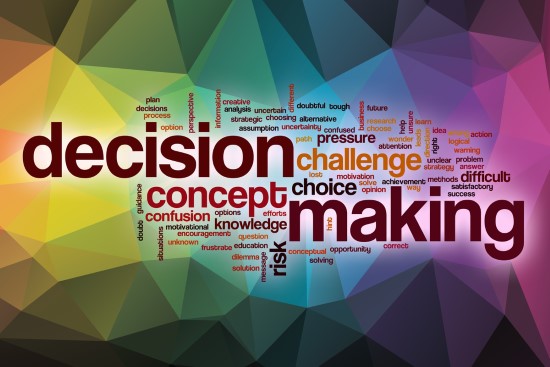May 11, 2023

The process of making decisions is an essential element of our daily lives. Your making decisions has an impact on your professionally and personally. Making smarter decisions, however, isn't necessarily easy. You need careful thought as well as analysis and ability to work through the uncertainty. In this article we'll go over seven strategies that will aid you in making better decisions and improve your decision-making processes.
Determine your process for making decisions:
To make better decisions, it is crucial to comprehend the various components of the decision-making process. It is essential to identify the issue or opportunity that must be addressed. Clearly defining the decision-making process provides a structured framework which helps you organize your ideas and activities. In case where you really want extra resources about decision-making, look at this website.
Collect relevant data:
It is essential to collect all the information you can prior to making any choices. It is important to gather as much information about your decision as you can. Having a solid foundation of knowledge allows you to make educated decisions that are based on fact rather than assumptions.
Consider multiple perspectives:
A multi-point perspective is essential to make better decisions. Consider the opinions of people with a different viewpoint and expertise. It is possible to gain more insight into the problem by examining different viewpoints.
Assessment of the possible outcomes
In making decisions when making decisions, it is crucial to consider the possible outcomes. Examine the benefits and risks that come with every option, and evaluate the possible consequences. The evaluation will help you determine the potential issues and take an informed choice.
Your instinct is the most reliable source of information.
When gathering data and considering different perspectives is important however, you must also believe in your instincts. Intuition can give useful insights, which can be a great complement to analytical process. Combining intuition and rational thought allows for a more holistic the decision-making process.
Choose to act and make the decision:
Somewhere, you need to make your decision and act. Establish a specific goal and choose the course of action that is in line with your objectives and the information gathered. Indecisiveness or apathy may result in missing chances, therefore it's essential to move forward without hesitation.
Learn from past decisions:
It is crucial to reflect on your past decisions to help you improve your future choices. Review the results of your past choices, identify lessons learned, and incorporate those insights into your decisions-making process. Continuous improvement and adapting are essential for personal and professional growth.
Get feedback from others and take lessons from the experience of others.
For a better understanding of your decision-making capabilities, actively seek opinions from your peers. Be open to constructive criticism as well as diverse perspectives. By learning from others, you broaden your knowledge and gain different insights which can help you make better decisions in your process.
Flexibility and flexibility:
Ability to adjust and adapt is essential when making decisions. The situation can alter and more information could be acquired. Being open to adjusting your plans as necessary will allow you to be flexible and have the capability to manage uncertainty effectively.
Be patient and resilient:
The decisions you make can have surprising and difficult consequences. In the face of what will happen to your choices, practice patience and resilience. Recover from failures, alter the way you approach as well as persevere. Building resilience strengthens your decision-making abilities over time.
Conclusion:
Better decision-making can be improved by practicing mindfulness and a sense of calm. By defining the decision-making process and gathering the relevant data and considering different perspectives as well as assessing the possible outcomes being able to trust your gut making decisions, implementing actions by learning from your mistakes and seeking feedback, remaining agile, and exercising patience and resilience to improve the quality of your decisions. Be aware that making decisions is an ongoing process every decision is an opportunity for development and improvement.
Posted by: VincentBusiness at
04:21 AM
| No Comments
| Add Comment
Post contains 667 words, total size 5 kb.
35 queries taking 0.0325 seconds, 84 records returned.
Powered by Minx 1.1.6c-pink.









